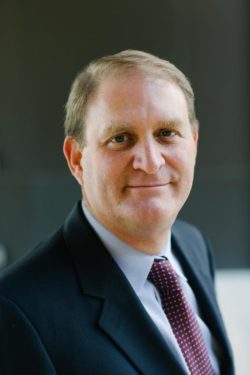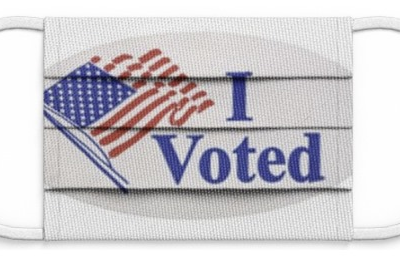Stanford Law and MIT Launch “Project on a Healthy Election”
Comprehensive program to gather data to determine best practices for conducting the general elections during a pandemic
April 9, 2020 — Stanford Law School and MIT announced the launch of the Stanford-MIT Project on a Healthy Election, a program to address the unprecedented and ongoing threat that the COVID-19 pandemic poses to the 2020 election. The project will bring academics and election administration experts together to assess and promote best practices to ensure the 2020 election can proceed with integrity, safety, and equal access.

“The nation’s election administrators know what steps are necessary to ensure a successful election in November,” said Nathaniel Persily, co-director of the new program and the James B. McClatchy Professor of Law at Stanford, co-Director of the Program on Democracy and the Internet at the Center on Philanthropy and Civil Society (Stanford PACS) and former Senior Research Director of the Presidential Commission on Election Administration. “They simply need the resources and the assistance to make the transition to mail balloting and safe polling-place voting.”
Recent primary elections have brought into sharp relief the potentially catastrophic impact the pandemic could have this fall if appropriate precautions are not taken immediately. Several states have delayed their primaries with the hope the virus will be more manageable by June. Others have taken steps to expand mail balloting, often without the necessary infrastructure to handle it. Still others have forged ahead with in-person voting, as happened in Wisconsin, leading voters to risk their lives to cast a ballot.
Each of these springtime election experiments in democracy under unprecedented conditions provides valuable data that can be used to ensure similar mistakes are not repeated in the fall for the general election.

“In the next few weeks and months, states and localities will be honing their plans to implement safe and secure voting environments for the upcoming primaries, and ultimately the November general elections,” said Charles Stewart III, co-director of the new program and Kenan Sahin Distinguished Professor of Political Science at MIT, Director of the MIT Election Data and Science Lab, and Co-Director of the Caltech/MIT Voting Technology Project. “Lessons brought together from the private sector and the academy will help ensure that this planning results in a safe environment that ensures access to the polls for all.”
Professors Persily and Stewart worked together previously on the Presidential Commission on Election Administration (PCEA) in 2013, which produced a set of recommendations to deal, in particular, with long polling place lines evident in the 2012 election, as well as other problems, such as running elections during natural disasters. They recently issued “Ten Recommendations to Ensure a Healthy and Trustworthy 2020 Election,” which emphasized the need to work within voters’ expectations and experience as jurisdictions design new ways of voting for the pandemic.
Stewart and coauthors recently took to the pages of the Washington Post to warn of the risks of mail balloting, while Persily and the former Republican and Democratic co-chairs of the PCEA, wrote in the New York Times of the need for Congress to appropriate the necessary funds to the states to make voting possible in November.
About Stanford Law School
Stanford Law School is one of the nation’s leading institutions for legal scholarship and education. Its alumni are among the most influential decision makers in law, politics, business, and high technology. Faculty members argue before the Supreme Court, testify before Congress, produce outstanding legal scholarship and empirical analysis, and contribute regularly to the nation’s press as legal and policy experts. Stanford Law School has established a model for legal education that provides rigorous interdisciplinary training, hands-on experience, global perspective, and focus on public service, spearheading a movement for change.
